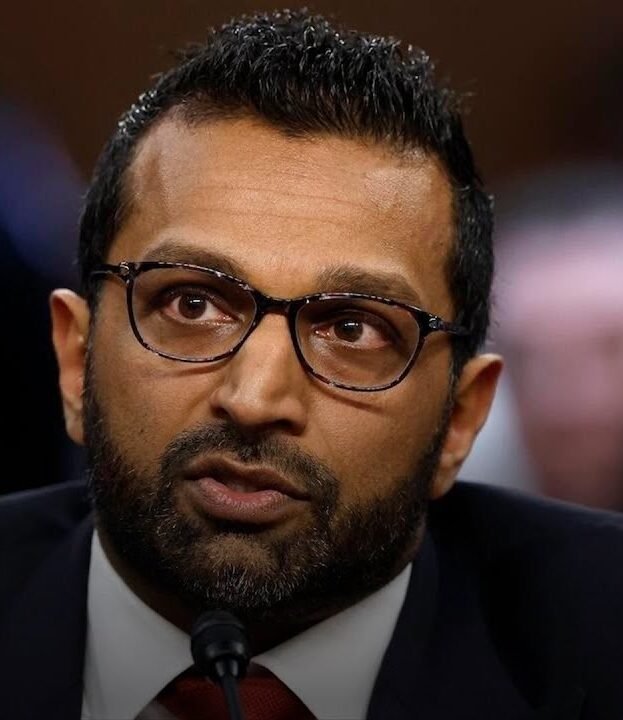Senate confirms Kash Patel as FBI director despite deep democratic concerns over retribution fears.
In a razor-thin 51-49 vote, the Senate has confirmed Kash Patel as the new director of the FBI, installing one of Donald Trump’s most loyal allies at the helm of America’s most powerful law enforcement agency. The move has sparked intense political turmoil, with Democrats warning that Patel’s appointment could lead to mass purges, political retribution, and a fundamental reshaping of the bureau’s mission.
Patel, a former Trump White House official, has built a career on fiercely defending the former president while attacking the very agency he now leads. His history of inflammatory statements, including labeling FBI officials who investigated Trump as “criminal gangsters” and calling some January 6 rioters “political prisoners,” has alarmed critics who fear he will weaponize the bureau against Trump’s adversaries.
“This is someone we cannot trust,” Senator Adam Schiff (D-CA) warned just hours before the vote. “He lacks the character, the integrity, and the independence needed to lead the FBI.”
Despite Patel’s assurances that he has “no interest” in political retribution, many Democrats remain unconvinced. At his confirmation hearing last month, Patel refused to distance himself from Trump’s well-documented desire to punish officials involved in investigations into his actions. Trump has already hinted that he expects certain FBI agents to be removed—raising concerns that Patel’s leadership could set the stage for mass firings of officials who played key roles in the Trump-Russia probe and the Capitol riot investigations.
Republicans, however, view Patel as the perfect choice to “restore accountability” at the FBI, arguing that the bureau has been politically biased against conservatives for years. “He wants to hold the FBI accountable to Congress, to the president, and most importantly, to the American people,” said Senator Chuck Grassley (R-IA), a vocal advocate for Patel’s nomination.
The confirmation battle was fiercely contested, with two Republican senators—Lisa Murkowski (R-AK) and Susan Collins (R-ME)—breaking ranks to oppose Patel’s appointment. Their defection, however, was not enough to derail the nomination in the GOP-controlled Senate.
Patel, who has a long history in national security roles, first gained Trump’s attention as a House Intelligence Committee staffer, where he played a central role in discrediting the FBI’s investigation into Russian interference in the 2016 election. He later joined the Trump administration, serving in various roles, including as chief of staff to the Secretary of Defense.
In his first statement as FBI director, Patel pledged to restore “trust” in the bureau. “The American people deserve an FBI that is transparent, accountable, and committed to justice,” he posted on social media. “The politicisation of our justice system has eroded public trust—but that ends today.”
His critics, however, remain sceptical. Some fear that Patel will use his position to dismantle the FBI’s national security operations, shifting the bureau’s focus away from counterintelligence and back to traditional crime-fighting. Patel has openly criticised the FBI’s post-9/11 intelligence-gathering role, arguing that the agency should step back from national security concerns.
Meanwhile, Patel’s confirmation comes amid rising tensions between the FBI and the Justice Department, which has recently demanded a list of all agents involved in the January 6 investigations—a move widely seen as a precursor to firings. Patel has denied any involvement in these efforts, but Democratic senators have pointed to insider reports suggesting he was already coordinating with Trump’s allies on plans to “clean house.”
With Patel now firmly in control, the FBI stands on the brink of a historic transformation. Whether his tenure will bring reform, retribution, or outright chaos remains to be seen. One thing is certain: America’s top law enforcement agency will never be the same again.
